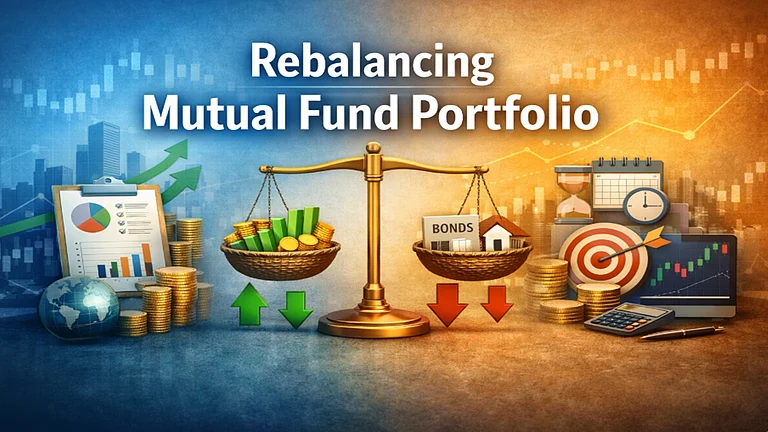
Summary of this article
An exit strategy, just like an entry, should also be planned while investing in mutual funds. It is crucial to achieve the desired returns, financial cushion, and accumulation of money in the long term, along with the tax benefits
Like an entry, the exit strategy also needs planning. The interest in the equity market is evident from the rising number of Demat accounts that have increased to over 21 crore as of October 31, 2025. At the same time, the number of mutual fund folios rose from approximately 21 crore as of September 30, 2024, to 25.1 crore as of September 30, 2025, according to AMFI data. The data show that small investors are increasingly taking more interest in the stock market and mutual funds. However, due to the ease of investing in mutual funds and the emphasis on investing through systematic investment plans (SIPs), small investors often begin investing without a clear exit strategy or specific goal in mind.
In this case, the savings keep accumulating, showing growth, but when one goes to sell the fund, a good amount of the profit goes to tax. As focus is always on saving and investment and not on withdrawal, many investors feel perplexed about when the right time is to exit a mutual fund. It is more so because mutual funds do not have a fixed tenure. With more subjectivity involved at every step, investors may feel overwhelmed with decision-making.
Here are five situations when one may consider cashing out of a mutual fund scheme.
Goal Is Achieved
In cases where the investment has been made with a specific goal and for a certain tenure, exiting the fund after the tenure is complete is the optimal time to exit. For example, if one invests in a scheme with a goal to save for a child's education, once the child reaches the age of 17-18, one should exit the scheme to use the funds for educational purposes. In case there is any surplus left after covering education expenses, one may invest it elsewhere or use it for personal or other purposes.
Emergency Needs
Because of no lock-in in mutual funds except in a few types of schemes, they become a ready-to-go source of funds for emergency needs. However, it may be risky if the markets are in a downward swing.
Jiral Mehta, Senior Manager, Research, FundsIndia, says, “Many investors focus only on starting their investments, but ignore how and when to exit. If you continue equity SIPs and lump sums right until your retirement or goal date, you run the risk of a market correction wiping out years of effort at the wrong time.”
Although when there is no other option, one will have to exit from a mutual fund scheme, experts suggest that for emergencies, the first withdrawal option should be emergency funds. If that is exhausted, then only mutual funds should be used.
Consistent Underperformance
When a fund is consistently underperforming compared to the category average, it is time to review the fund and its objective. However, it does not mean a short-term (3-12 months) performance evaluation. If, in the long term, a scheme performs less than the benchmark index and the category peers, then one may consider exiting from such a scheme to invest the money in a better alternative.
Change In Risk Tolerance
Usually, when one starts investing money in mutual funds, it is the surplus one can put to risk in the expectation of growing in the long term. This is the typical advice given by advisors. But in the long-term, Investors’ risk profile can change. For example, when one gets married, or after the birth of child/ren, work profile, etc., are some of the circumstances that can affect one’s risk tolerance. In that case, exiting from a risky and volatile scheme may be considered.
Rebalancing The Portfolio For Ideal Asset Allocation
Investment in a mutual fund is advised for the long term, but at the same time, it is necessary to review and rebalance the portfolio based on age, changed goals, and risk profile.
Mehta says, “For goals which have two years left and where timelines are rigid, you can gradually move money from the current accumulated portfolio to safer debt funds. For goals where timelines are not rigid, you can continue to hold your current SIP portfolio and consider using balanced advantage funds for incremental investments.”
So, reviewing the portfolio at regular intervals and exiting from some schemes and investing in others is crucial for the portfolio to grow and remain relevant.
If one is planning to invest in a mutual fund scheme at the next dip in the market or thinking of starting a new SIP in a new scheme, get it with a clear exit plan, so that the exit results in a gain, not a tax burden or a loss.



















